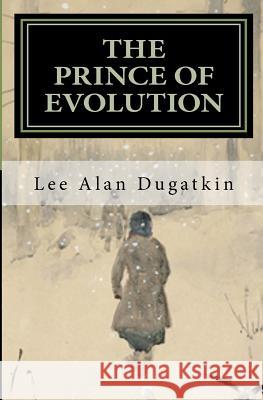The Prince of Evolution: Peter Kropotkin's Adventures in Science and Politics » książka
The Prince of Evolution: Peter Kropotkin's Adventures in Science and Politics
ISBN-13: 9781461180173 / Angielski / Miękka / 2011 / 136 str.
In "The Prince of Evolution," Lee Alan Dugatkin introduces the reader to Russian Prince Peter Kropotkin -- one of the world's first international celebrities. In England Kropotkin was known as a brilliant scientist, famous for his work on animal and human cooperation, but Kropotkin's fame in continental Europe centered more on his role as a founder of anarchism. In the United States, he pursued both passions. Tens of thousands of people followed Prince Peter during two speaking tours that took him around America. Kropotkin's path to fame was labyrinthine, with asides in prisons, breathtaking 50,000-mile journeys through Siberia, and banishment from most respectable Western countries of the day. In Russia, he went from being Czar Alexander II's favored teenage page, to a young man enamored with the theory of evolution, to a convicted felon and jail-breaker, eventually being chased halfway around the world by the Russian secret police. While in jail, and while on the run when he was enlightening and entertaining huge crowds, Kropotkin found the energy to write books on a dazzling array of topics: evolution and cooperation, ethics, anarchism, socialism and communism, penal systems, and the coming industrial revolution in the East to name a few. Though seemingly disparate topics, a common thread--Kropotkin's "scientific law of mutual aid," which guided the evolution of all life on earth--tied these works together. Kropotkin was not only the first person to clearly demonstrate that cooperation was important among animals, he was the first to forcefully argue that understanding cooperation in animals would shed light on human cooperation, and, indeed might permit science to help save our species from destroying itself. His overarching goal was to understand cooperation in nature, so that he could promote cooperation in humans. Just like in the animals he watched for five years in Siberia, Kropotkin saw human cooperation as ultimately being driven not by government, but by groups of individuals spontaneously uniting to do good, even when they have to pay a cost to help. In "The Prince of Evolution," Lee Alan Dugatkin will make the reader stop and take pause to consider what this one remarkable man did to try and make the world a more cooperative place.
Zawartość książki może nie spełniać oczekiwań – reklamacje nie obejmują treści, która mogła nie być redakcyjnie ani merytorycznie opracowana.











